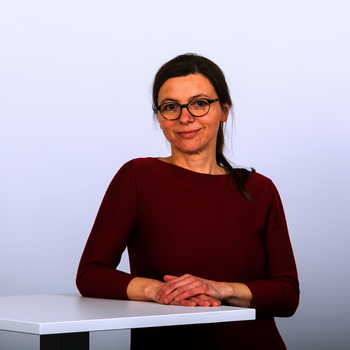Social Cohesion in Times of Crisis - Concepts, Approaches, and Perspectives. Summer School of the Research Institute Social Cohesion (RISC)
The career development programme of the Research Institute Social Cohesion (RISC) invites you to its first digital summer school, focusing on the subject of “Social Cohesion in Times of Crises: Concepts, Approaches, and Perspectives” and being held from 5 to 7 July 2021. The summer school addresses doctoral candidates and postdoctoral researchers of the Research Institute, which spans 11 scientific institutions in Germany. At the same time, the summer school offers the opportunity for intensive exchange with doctoral candidates and postdoctoral researchers from other locations within and beyond Germany on topics of common interest as well as for networking across disciplinary and geographical borders. We therefore cordially invite young researchers from all over the world whose research interests relate to the focus of this year’s summer school to join us online and participate.
Thematic Focus of the Summer School
Within its overarching theme, the RISC summer school takes up the current public debate on the multilayered aspects of social cohesion and the possible risk of its (partial) dissolution when crises put strain on institutions as well as the trust placed in them. The summer school aims to provide an academic arena, promoting a wide range of methods and approaches, to analyse the historical and current-day as well as global and regional variance of social cohesion together with the risks and the emerging crises being faced – looking at not only the current corona-related crisis but also other social crises.
In addition to the primary focus of the summer school – which research questions arise in relation to social cohesion during crises, and which theories offer possible explanatory potential – we are particularly interested in questions of how trust developed during the (corona) crisis, especially in (democratic) constitutional institutions and towards different members of society, especially minorities. What influence does the crisis have on the discourse on the integration of democracy as well as on events, attitudes, and actions that threaten democracy? What influence does the crisis have on conspiracy myths as well as the growth of group-based misanthropy and violence? How does the crisis affect solidarity and social capital within society? What are the historical references with regard to social cohesion during crises?
Participants are also invited to discuss possible positive effects of crises on social cohesion. For example, which measures at the level of politics, the economy, and civil society or which social subsystems and their institutions (e.g. health, justice, education, or religion) contribute to maintaining social cohesion in times of crisis? How does the crisis affect the cohesion of different social groups and milieus, and how can this phenomenon be explained?
We would also like to invite projects that shed light on the role of (social) sciences and how they contribute their knowledge to the shaping of social cohesion. What is the usefulness of such (social) scientific knowledge, what are the transfer and application possibilities for this knowledge in the field of action of social cohesion, and what role do researchers play in this?
Organization of the Summer School
The summer school is organized into panels of 3 to 5 presentations each. Proposals can be submitted in the form of an individual presentation as well as in the form of a panel. At the end of the summer school, a round table with reports from the panels will bring together the most important findings and integrate them into a final discussion. Participants of the summer school will also have the opportunity to attend the annual conference of RISC, to be held from 8 to 9 July.


